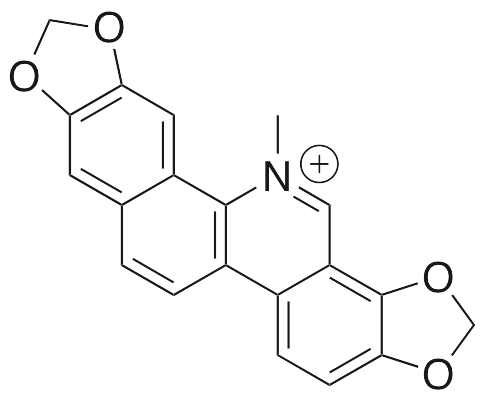Description
Sanguinarine is a benzophenanthridine alkaloid that exhibits a wide variety of beneficial properties, including anticancer, anti-inflammatory, and antibacterial activities. In breast cancer cells, sanguinarine increases levels of tissue inhibitor of metalloproteinase 1 and 2 (TIMP1 and TIMP2) and heme-oxygenase 1 (HO-1), decreases expression of matrix metalloproteinases (MMPs), prostaglandin E2 (PGE2), and COX-2, and inhibits the phosphorylation of Akt and ERK as well as the activation of NF-κB. Sanguinarine also inhibits VEGF release and increases levels of ROS, inducing apoptosis and inhibiting growth of mammary adenocarcinoma cells. In animal models of colitis, this compound decreases expression of IL-6, NF-κB, and TNF-α, resulting in decreases in weight loss, disease activity, and mortality. Sanguinarine increases oxidative stress and induces DNA damage in species of Microcystis, a cyanobacterium, inhibiting cell division. In species of Bacillus, this compound decreases bacterial membrane potential. Sanguinarine may also inhibit tubulin polymerization, allosterically activate AMPK, and inhibit amino acid carboxylase.
